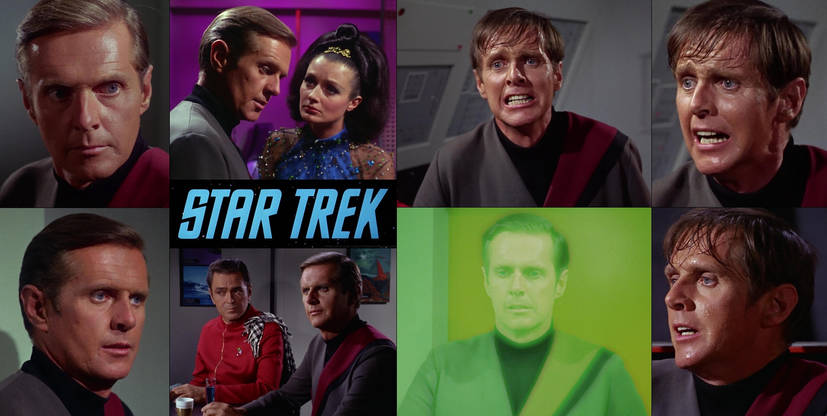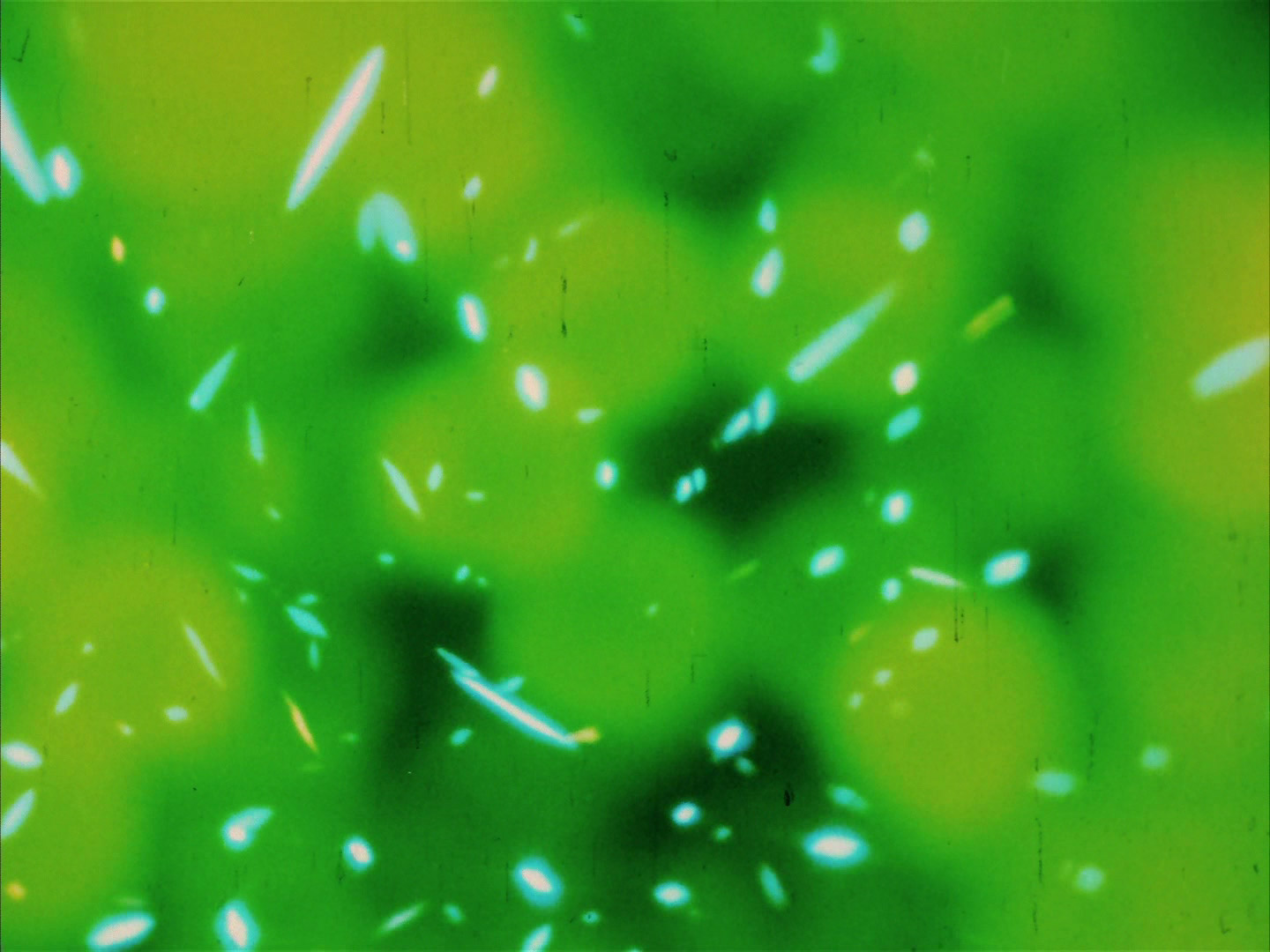Used to hate but now like or love:
* "The Way to Eden". It probably stunk at the time with changing characters to fit the plot and being an arguably unsubtle reference to Herbert Armstrong, and stunk to degrees not dissimilar to Lost In Space's third season hippie-type outings (e.g. The Promised Planet, Collision of Planets). But having aged a while, it now feels more like (a) a time capsule reflecting on the groovy days because it was trendy, and (b) a story whose only real failing is trying to do too much at once. Not to mention, the personality archetypes of the hippies are surprisingly nuanced -- who's sincere, who's conniving, who's legitimately insane (Sevrin), and who the smarmy brats are. The story's still a mess with so much, with Synthococcus Novae being the icing on the cake, it just begs for more rather than glossing over oversimplified aspects for the sake of the story. Do I love it? No, this episode isn't in the same league as "Space Seed". But it's got a lot of lost potential.
* "Metamorphosis" - Seconding what @Farscape One said. Plus, some dialogue has some nice double meanings I'd never picked up on as a kid.
Used to love but now loathe or find middling at best:
* "The Trouble with Tribbles". The more I rewatch, the more the story is hinging on the comedic aspects over everything else. But on that initial watch? It's easy to see why it's heralded, and not wrongly so. Plus, the occasional lighter story compensates for stronger material. Every show mixes it up.
* "The Changeling" - all the action action action and how cool Nomad looked were great at one point... Even the rampage of Nomad, which reminds one loosely of "Charlie X", has some excitement... However, few people remain age seven forever and that's when the plot problems start to become apparent, such as: The "90 photon torpedoes" being the equivalent to one of Nomad's farts is an outlandishly stupid number, where only one fart would blow up the entire ship (since no other story outlandishly uses inflated numbers.) The alleged awe of Scotty being zapped and revived right on cue is not good drama. No worries, after Nomad's other magical ability of mindwiping (and instructing Uhura imperfectly about what he was about to do), Uhura will be fed a couple decade's worth of education and will be ready for next week's episode. Also, how does a biological being with telepathy communicate with the biological telepathic ability upon a mass of circuit boards? "Just because he's fiction"? Not when the new ability comes in against established character precedent (reasoned attribution to anchor the audience and set plotting limitations), or put in as lieu of "character development" - especially if never used again. Maybe if Nomad's memory circuits were magnetic coil cores and Spock could somehow feel and translate the magnetic field - not unlike how disk recovery services can scan the field of a platter without directly touching it - but I don't think a Vulcan brain field operates via a charged magnetic field, since being in proximity to a loudspeaker might wreak havoc. Or why you don't put floppy disks next to a speaker or next to the monitor that had built-in speakers. But 60s Trek and even some 80s/90s Trek pull the same stunt in various episodes (e.g. "Wolf in the Fold" plus a handful of eps involving Data and somehow Troi senses actual emotion from a walking SoC). Not to mention the blatant sexism that makes this story a pain to watch. Is it no wonder that the more compelling aspects of this story were retooled for "The Motion Picture" and done better there? That said, Kirk nagging Nomad to self-destruct never gets old.
Proof that even a terrible episode has a great moment within. Even if the computer that Nomad collided with didn't have a loopback filter to prevent locking up, or the computer it did bang with was able to do self-repairs and integrate-- oh piffle, just don't think into the episode and some of it's almost watchable.
* "The Way to Eden". It probably stunk at the time with changing characters to fit the plot and being an arguably unsubtle reference to Herbert Armstrong, and stunk to degrees not dissimilar to Lost In Space's third season hippie-type outings (e.g. The Promised Planet, Collision of Planets). But having aged a while, it now feels more like (a) a time capsule reflecting on the groovy days because it was trendy, and (b) a story whose only real failing is trying to do too much at once. Not to mention, the personality archetypes of the hippies are surprisingly nuanced -- who's sincere, who's conniving, who's legitimately insane (Sevrin), and who the smarmy brats are. The story's still a mess with so much, with Synthococcus Novae being the icing on the cake, it just begs for more rather than glossing over oversimplified aspects for the sake of the story. Do I love it? No, this episode isn't in the same league as "Space Seed". But it's got a lot of lost potential.
* "Metamorphosis" - Seconding what @Farscape One said. Plus, some dialogue has some nice double meanings I'd never picked up on as a kid.
Used to love but now loathe or find middling at best:
* "The Trouble with Tribbles". The more I rewatch, the more the story is hinging on the comedic aspects over everything else. But on that initial watch? It's easy to see why it's heralded, and not wrongly so. Plus, the occasional lighter story compensates for stronger material. Every show mixes it up.
* "The Changeling" - all the action action action and how cool Nomad looked were great at one point... Even the rampage of Nomad, which reminds one loosely of "Charlie X", has some excitement... However, few people remain age seven forever and that's when the plot problems start to become apparent, such as: The "90 photon torpedoes" being the equivalent to one of Nomad's farts is an outlandishly stupid number, where only one fart would blow up the entire ship (since no other story outlandishly uses inflated numbers.) The alleged awe of Scotty being zapped and revived right on cue is not good drama. No worries, after Nomad's other magical ability of mindwiping (and instructing Uhura imperfectly about what he was about to do), Uhura will be fed a couple decade's worth of education and will be ready for next week's episode. Also, how does a biological being with telepathy communicate with the biological telepathic ability upon a mass of circuit boards? "Just because he's fiction"? Not when the new ability comes in against established character precedent (reasoned attribution to anchor the audience and set plotting limitations), or put in as lieu of "character development" - especially if never used again. Maybe if Nomad's memory circuits were magnetic coil cores and Spock could somehow feel and translate the magnetic field - not unlike how disk recovery services can scan the field of a platter without directly touching it - but I don't think a Vulcan brain field operates via a charged magnetic field, since being in proximity to a loudspeaker might wreak havoc. Or why you don't put floppy disks next to a speaker or next to the monitor that had built-in speakers. But 60s Trek and even some 80s/90s Trek pull the same stunt in various episodes (e.g. "Wolf in the Fold" plus a handful of eps involving Data and somehow Troi senses actual emotion from a walking SoC). Not to mention the blatant sexism that makes this story a pain to watch. Is it no wonder that the more compelling aspects of this story were retooled for "The Motion Picture" and done better there? That said, Kirk nagging Nomad to self-destruct never gets old.
Proof that even a terrible episode has a great moment within. Even if the computer that Nomad collided with didn't have a loopback filter to prevent locking up, or the computer it did bang with was able to do self-repairs and integrate-- oh piffle, just don't think into the episode and some of it's almost watchable.



 )
)
